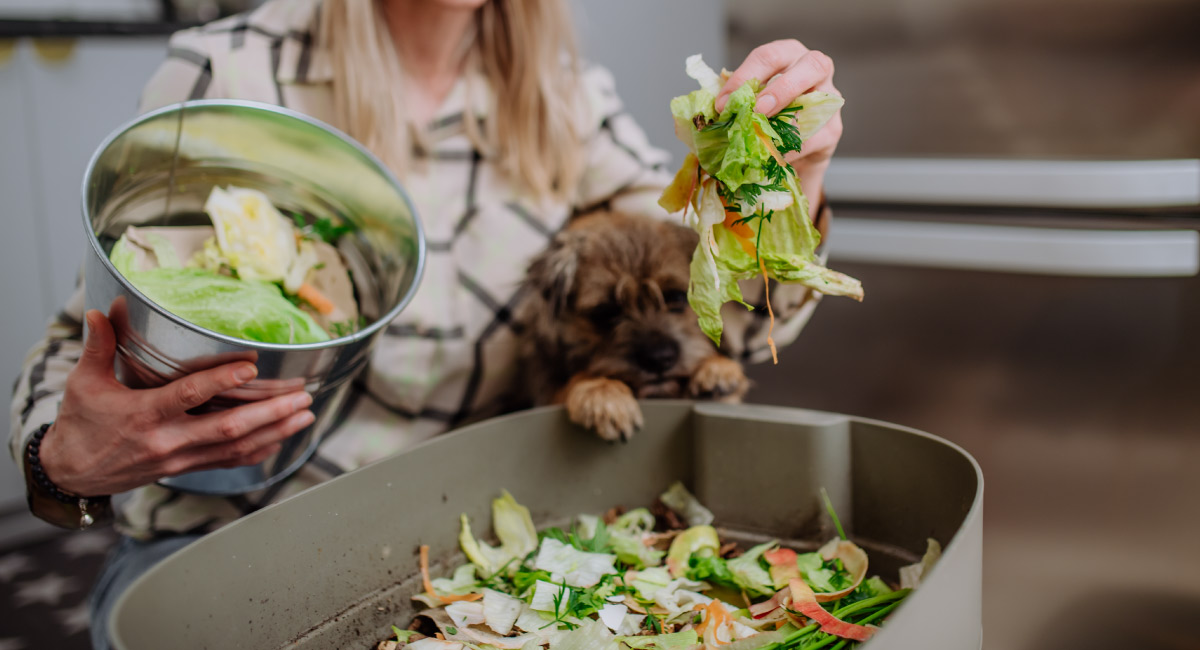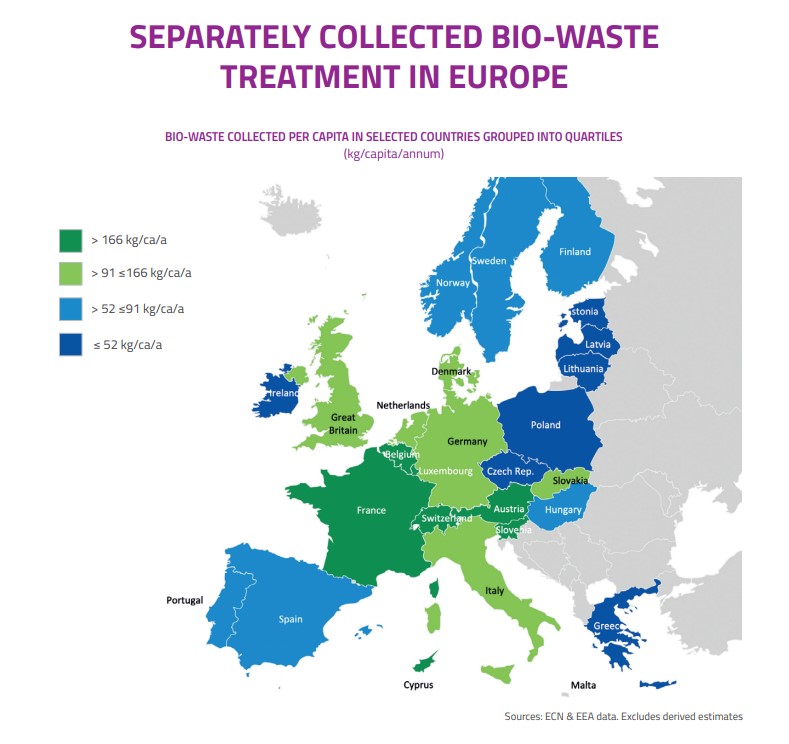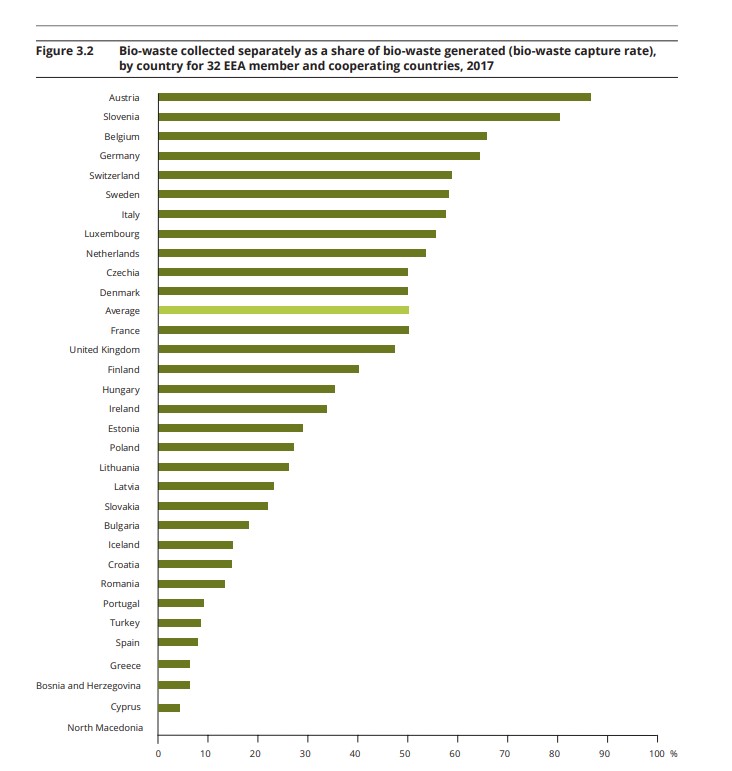In an era of increasing environmental consciousness, composting has emerged as a vital practice for sustainable waste management.
Today, composting is used not only because it reduces waste that ends up in landfills, but because it also offers a number of benefits to individuals, communities, and the environment in general.
Let’s take a closer look at what composting is exactly and what its benefits are, how the process is carried out and what the necessary composting machinery is, as well as how people and businesses can take full advantage of it.
What is composting and why is it so important?
Composting is an extremely important form of natural recycling that essentially harnesses the power of decomposition.
More specifically, through controlled biological decomposition (composting), organic materials, such as food scraps and paper/wood products, are turned into compost.
This process is based on the combined action of micro-organisms, fungi, and small invertebrates such as earthworms, while in order to get the ideal results you also need – in correct proportions:
- Carbon-rich materials (also known as “browns”, such as twigs and dry leaves)
- Nitrogen-rich materials (also known as “greens” such as fruits and vegetables)
- Adequate humidity
- Oxygen

What are the benefits of composting?
Composting has many important benefits that contribute to a healthier planet and a more sustainable future.
- From an environmental point of view, composting plays a key role in reducing wast By reducing organic waste that ends up in landfills, the production of methane, a gas that is largely responsible for the greenhouse effect, is reduced.
- Additionally, composting reduces the need for chemical fertilizers and pesticides, conserving natural resources and promoting healthier ecosystems.
- In addition to the environmental benefits, composting offers many advantages to agriculture and animal farming, since compost:
- strengthens soil structure and fertility, improving drainage, moisture retention and aeration,
- replenishes essential nutrients and beneficial microorganisms, enhancing robust crop growth and reducing the need for synthetic fertilizers,
- helps soil resist erosion and reduces water runoff, contributing to conservation efforts as well as lower irrigation bills;
- if derived from the appropriate plant materials, such as corn and clover, it can be used to create silage.
What materials can be composted (and which can’t)?
As mentioned above, the majority of organic materials can be composted, making food composting more and more common.
However, not all organic materials can be composted. See what to compost.

Compostable organic materials:
- Greens, i.e., materials high in nitrogen
- Fresh leaves
- Grass
- Plants
- Food waste (egg shells, fruit and vegetable peels etc)
- Residues from coffee and tea (coffee grounds, tea bags)
- Manure from herbivorous animals, such as cows and chickens
- Browns, i.e. materials high in carbon
- Kitchen paper, napkins
- Newspapers
- Small twigs
- Brown leaves
- Sawdust
- Straw
- Wood ashes

See what not to compost:
- Bones
- Oils and fats
- Inorganic materials (metal, glass, plastic)
- Dog/cat litter
- Infected plants
The aim is to avoid all materials that may cause unpleasant odors, attract rodents, or carry diseases, while it is also a good idea to avoid any materials that are difficult to break down, such as roots and seeds.
These rules apply mainly to home composting or the municipal brown composting bins that are now available in Greece.
However, when it comes to the modern composting units where organic residues from food processing industries, HO.RE.CA. businesses, warehouses and food chains, agricultural and livestock units etc. end up, it is possible to compost more materials, as the humidity, oxygen and temperature of the composters are constantly controlled to achieve the best possible results.
What is the process of composting? How does it work?
In addition to the composting process that anyone can follow at home, professional composting performed by supermarkets and restaurants, as well as in livestock, meat processing, and silage units is also very important.
For example, in this case there is a lot of machinery that can be used specifically for the preparation of silage.
More specifically, there are:
- Trailed and truck-mounted compost shredders, which are used for cutting, shredding and storing corn, cotton, or for the production of wood chip for composting or burning respectively
- Compost turners and mixers, which are essential for turning and aerating the compost during windrow composting, in order to control moisture levels and release the gaseous products and heat generated while composting
- Trommel screen machines, used to remove foreign matter from the compost, as well as to obtain its final texture, grain size and moisture before it is packaged (as long as we are talking about a product for sale)
- Silage equipment, for the distribution of compost, silage, and manure in fields and greenhouses, as well as for crushing and storing silage and large volumes of branches, corn, wood, and distributing silage to cattle and sheep

What is true about composting in Europe and Greece today?
In recent years, the EU has been pressuring Greece to reduce the volume of bio-waste that ends up in landfills and to simultaneously increase the rate of recycling.
More specifically, according to a report by the European Compost Network (ECN) for 2022, less than 40 million tons of municipal bio-waste is collected separately and processed to become high-quality compost in Europe.

Source: https://www.compostnetwork.info/wordpress/wp-content/uploads/ECN-rapport-2022.pdf
This means that only 17% of municipal solid waste is organically recycled through composting and anaerobic digestion, with Greece at the bottom of the list.
To achieve the overall municipal waste recycling target of 65% by 2035, there is a need to further incentivize separate collection and biological management of bio-waste at a European level.

Source: https://zerowasteeurope.eu/wp-content/uploads/2020/07/2020_07_06_bic_zwe_report_bio_waste.pdf
Composting and Municipalities – What the future holds for Greece?
Municipalities face significant challenges when it comes to waste management in Greece, especially as their obligations towards the EU are constantly increasing.
One solution is to implement municipal composting programs so that cities reduce the flow of organic waste to landfills. This in turn not only reduces costs but can even work as an income if the Municipalities sell the compost to farmers and ranchers.
Beyond the financial benefits, municipal composting programs engage and educate the community. They provide an opportunity for residents to actively participate in sustainable practices and learn about the importance of waste reduction, while they can also be incorporated into schools, fostering a sense of environmental responsibility from an early age.
If you want to know more about professional composting in Municipalities and businesses, contact GEPALIFT today, a company that has emerged as a leader in the development and production of modern composting systems.
Our experienced consultants will help you find the right product for your needs – an economically viable and attractive solution for every requirement.


